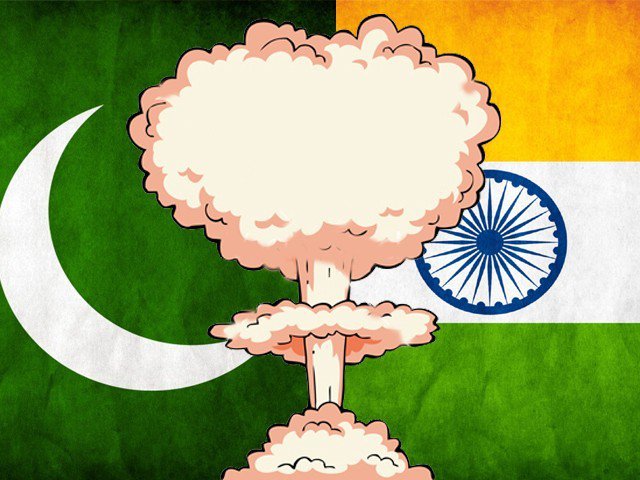
There are few things that are constant. Two of them are that each day the sun rises and sets, and each day the West is concerned about Muslim countries with nuclear weapons. This obsession has made us very suspicious of the West’s intentions toward our nuclear assets, which in turn results in another very strange obsession, which is our need to justify what is already reality, as if the sun itself needed to be convinced to rise every morning. These justifications, however, do raise in some interesting, if unintended points. For example former Ambassador to the UN Munir Akram argues that we need to do a better job of explaining the Indian threat to the world. Only, in his attempt to do so, he actually leaves one crucial question unanswered.
In his piece for Dawn, Ambassador Akram explains that Pakistan must have nuclear weapons to deter a belligerent India.
First, the world should be made to understand why Pakistan remains “obsessed” with India. As the editorial itself observes (almost approvingly), Prime Minister Modi has threatened “retaliation” against Pakistan “if Islamic militants carry out a terror attack in India” — irrespective of whether or not the Pakistan government is responsible for this. Given Modi’s aggressive policies in Kashmir and the BJP’s persecution of Indian Muslims, such a “terrorist” attack appears almost inevitable, sooner or later. If Modi’s doctrine is applied, an India-Pakistan conflict also becomes inevitable.
The Indian threat is real “on the ground”. Over 70pc of India’s land, air and sea forces are deployed against Pakistan. India’s capability for aggression against Pakistan is being rapidly enlarged by the $100 billion in advanced weaponry being sold to it including by the US, Europe and Israel. Indian generals have not disavowed their ‘Cold Start’ doctrine envisaging a sudden and massive attack against Pakistan.
Ambassador Akram’s explanation is very familiar, but for some reason reading it in this way I was left with a real sense of unease. That is because it becomes quite apparent that there is something missing: Any mention of Indian aggression.
Actually, what the Ambassador claims is the Indian threat is not actually a threat of aggression, but a threat of retaliation. In other words, he claims that India poses no threat to Pakistan unless it is attacked first “irrespective of whether or not the Pakistan government is responsible”, and then claims that an attack by Pakistan-based jihadi militants against India is “inevitable”. This is severely problematic.
The Ambassador is essentially suggesting that the Pakistani state either supports or, perhaps even more frightening, has no ability to control jihadi terrorists in its borders.
Either way, he is saying that Pakistan is building its arsenal in order to respond to a conventional Indian retaliation against terrorism with nuclear weapons. In doing so, he is suggesting that Pakistan is extending the protection of its nuclear umbrella to international terrorists.
In his conclusions, Ambassador Akram asks the following questions:
Under the circumstances, it would be wise for Pakistan to ask the US: if India indeed threatens to launch an attack against Pakistan after a ‘terrorist’ incident, will the US intervene to prevent the conflict, or to prevent Pakistan from resorting to nuclear deterrence?
The central question which Pakistan must pose to the world is: if the aim is to prevent a South Asian catastrophe, is it not better for the world powers to promote an equitable solution to the Kashmir dispute and an agreement on mutual military restraint between Pakistan and India?
These are serious and terrifying questions. However, the Ambassador is ignoring the crucial question we should be asking ourselves: Will the Pakistani state dismantle the networks of jihadi terrorists that exist within our borders before they are able to sow the seeds of our own demise?
![]()





